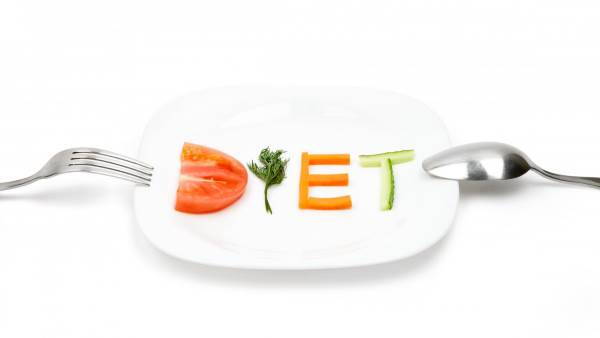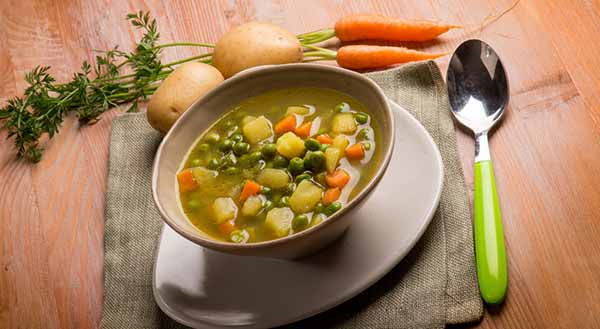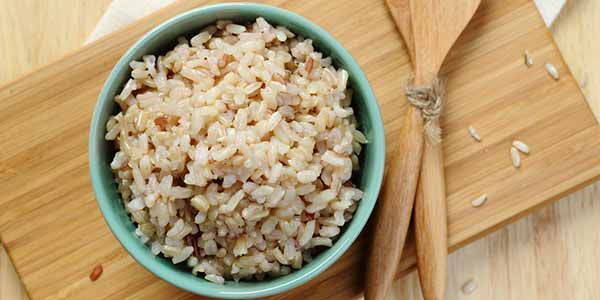The low-calorie diet is a diet in which fewer calories are consumed every day than would be needed by the body. There are various types, let's find out which are the best known and used, the schemes and why it would always be good to listen to the opinion of a nutritionist before embarking on a weight loss diet of this type.
Don't store avocado like this: it's dangerous
La low-calorie diet it is a diet in which they are taken every day fewer calories of how many would be needed by the body. There are various types, let's find out which are the best known and used, the schemes and why it would be good to always listen to the opinion of a nutritionist before embarking on a weight loss diet of this type.
Each person according to sex, age, activity that he carries out during the day, sport practiced, possible presence of pathologies, etc. needs to take a certain daily quantity of calories useful to the body to perform all its functions in the best possible way. The low-calorie diet is a diet that somehow wants to upset this balance by taking less food than would be necessary, thus making the body burn fat and lose weight quickly.
In some cases these types of diets are used as real therapy, but these are situations in which the diet to be followed is of strict medical relevance since it is aimed at solving a specific health problem.
Ma what low calorie diets are there?
Index
HOW AND WHICH TO CHOOSE
First of all, remember that in the case of diets and especially low-calorie diets DIY is absolutely not recommended. In fact, these are dietary regimes that put a strain on the body and which must be followed under the supervision of an expert and for a well-defined period of time in order to achieve the set goal while avoiding contraindications and possible side effects.
Read also: SLIMMING DIET: HOW AND WHICH TO CHOOSE, SCHEMES AND ADVICE OF NUTRITIONISTS
We have already talked about some famous and widely used low-calorie diets:
Mediterranean diet (low calorie version)
Probably the best option to choose if you intend to follow a calorie restricted diet is to reduce the portions of a traditional Mediterranean diet made of whole grains, legumes, fish, vegetables, fruit, etc.
Read also: MEDITERRANEAN DIET: PROVEN BENEFITS, EXAMPLES AND SLIMMING VERSION
Fasting-mimicking diet
It is a diet from follow for a few days and sporadically not so much to lose weight as to get some health benefits. On the first day, more calories are expected (about 1000) but gradually it drops to a lower and lower calorie restriction. A specific kit has been designed to make it easier for you to follow this diet but you can safely avoid buying it by using the foods you commonly have at home. However, you need the help of a fasting-mimicking diet expert. The permitted foods are essentially liquid ones: soups and minestrone but also dried fruit, simple carbohydrates and natural fats.
Read also: DIET MIMA FAST: ADVANTAGES, EXAMPLES AND CONTRAINDICATIONS

Dieta scardsale
The Scarsdale diet is a low calorie diet in which you eat substantially protein while severely restricted carbohydrates. It's a lightning diet which in fact lasts only 2 weeks plus 2 maintenance and which promises a weight loss of about 450-500 grams per week.
Read also: SCARSDAL DIET: HOW IT WORKS, EXAMPLES, WHAT TO EAT AND CONTRAINDICATIONS
Rice diet
The rice diet in its first phase, considered to be detoxification, has a very low calorie intake (about 800 calories). Basically, you eat rice (preferably wholemeal) with a drizzle of oil, fruit and vegetables. In the second phase, however, the calories increase to 1200 and you can also include legumes and lean animal proteins, raw vegetables, steamed or grilled, fresh or dried fruit and other types of cereals (preferably gluten-free). For seasoning, very little salt and extra virgin olive oil are allowed.
Read also: RICE DIET: HOW IT WORKS, EXAMPLES, WHAT TO EAT AND CONTRAINDICATIONS
Minestrone diet
Although this type of diet it does not include calorie counts, the minestrone diet is a low-calorie regime in which only this food can be consumed at will as well as raw and cooked vegetables and fruit. It is a diet that can only be followed for a week (maximum two) to avoid nutritional deficiencies.
Read also: MINESTRONE DIET: HOW IT WORKS, EXAMPLES, WHAT TO EAT AND CONTRAINDICATIONS

Other types of low calorie diets are the ketogenic diet, the zone diet and in general all low carb diets.
WHAT TO EAT
Depending on the low calorie diet you choose it is possible to eat more or less all foods or eliminate some or even have a diet that for a certain period of time makes you eat in particular some foods that promote weight loss and diuresis (for example the rice diet and that of minestrone, in which these foods are omnipresent in practically all meals).
Le More general low calorie diets allow you to eat all foods simply by reducing the portions and therefore acting on the caloric intake which is reduced more or less drastically depending on the needs.
Most low-calorie diets therefore allow you to eat:
• Bread
• Pasta
• Milk and cheeses
• Meat
• Fish
• Vegetables
• Fruit
• Legumes
• Egg
SCHEMES
Mediterranean diet in a low-calorie version
Breakfast: 40 g of oats with 150 ml of semi-skimmed milk, 150 g of fresh fruit and 20 g of nuts.
Spuntinfruit based (with peel)
Lunch: cooked (200 g) or raw (100 g) vegetables; a whole grain cereal (40 g) and legumes (30 g if dry, 120 g if fresh)
Price: cooked (200 g) or raw (100 g) vegetables, wild caught fish (150 g), wholemeal flour bread (50 g)
During the day it is possible to consume extra virgin olive oil (20-30 gr or about 3 tablespoons).
Fasting-mimicking diet scheme
Breakfast: tea, bar with dried fruit and seaweed
Lunch: fish (100 grams), salad or cooked vegetables
Price: vegetable soup, 5/6 olives, a packet of crackers
Scardsale Diet Schema
Breakfast: unsweetened coffee or tea (artificial sweetener can be used), half a grapefruit or seasonal fruit, a slice of protein or whole wheat bread
Lunch: fresh tuna or salmon dressed with lemon or vinegar, salad, seasonal fruit, coffee or tea
Price: veal slice, lettuce, tomatoes, celery and cucumbers, coffee or tea

Rice diet scheme
Breakfast: a cup of brown rice, freshly squeezed orange juice, coffee or tea
Lunch: a cup of brown rice with vegetables and lean ricotta
Price: Mushroom risotto with vegetables
Minestrone diet scheme
Breakfast: A cup of tea and a fruit
Snack: A glass of unsweetened fruit juice
Lunch and dinner: minestrone at will
OTHER USEFUL TIPS
Those who follow a low-calorie diet should also help the body and promote weight loss by drinking a lot (at least two liters of water per day), doing regular physical activity, eating 5 meals a day (3 main and two snacks), consuming a lot of fruits and vegetables as well as setting the right goal of weight loss but without exaggerating.
So remember to:
• Drink two liters of water a day
• Exercise
• Eat 5 meals
• Consume lots of fruits and vegetables
• Set yourself a fair goal in terms of weight loss
CONTRAINDICATIONS OF THE HYPOCALORIC DIET
The contraindications of the low-calorie diet are different. Since it is a diet that is too low in calories and therefore unbalanced, it does not instill, as it would be necessary to do if you want to maintain a healthy weight in the long term, a correct dietary education. In this case, a low-calorie diet is proposed to be kept sporadically to obtain an immediate effect.
Furthermore, this type of diet involves one too long not indifferent psycho-physical stress and can bring up a series of side effects including dizziness, hormonal changes, loss of muscle mass, problems with irregularities in the menstrual cycle as well as the much feared effetto yo-yo, that is, the regain of weight once the diet is interrupted.
Summarizing the contraindications and possible side effects of the low-calorie diet are:
• Psycho-physical stress
• Dizziness
• Hormonal changes
• Loss of muscle mass
• Menstrual irregularities
• Effetto yo yo
• Bad nutrition education
If you really want to follow this type of diet be followed by an expert.
There are some cases, however, in which the low-calorie diet is advisable. However, it is about situations of medical relevance, then evaluate and carry out with the help of an expert and with a specific health goal.
THE OPINION OF THE NUTRITIONIST
We asked Dr. Luca Giombini, nutritionist biologist, what do you think of low calorie diets. Here's what he told us:
“Low-calorie diets are diets in which fewer calories are introduced than required and can be more or less restrictive as regards the choice of foods. One of the most used 'models' are re-propositions of the Mediterranean diet where you simply go to recalibrate the amount of nutrients to be taken daily but, of course, there are also more particular models or trendy ones (such as the famous 'cucumber diet' or similar, which can be found in such magazines) ".
It is viable nutritional alternatives?
La calorie restriction may be a double-edged sword: initially there is, of course, a weight loss but if the thing is prolonged too long you can run into an adaptation to this diet that leads to a stop in weight loss. Obviously, the choice of these types of diets is convenient for people with significant work commitments or who carry out heavy physical work and who, therefore, are unable to follow physical training. If the restriction is too important in the first days we will have hunger pangs and continuous 'holes in the stomach'. A better choice is the one that concerns the less important cut of calories but which is associated with adequate physical activity. Regardless of the model chosen, remember that the old view of the diet is now waste paper: a calorie deriving from carbohydrates is not equal to a calorie deriving from fat, and therefore a simple sum of the values found in the nutritional table of the products is not enough. Of course, calories are important, in fact an excess of these will lead us to gain weight regardless of the source, but it must necessarily also pay attention to the quality and balance between the macronutrients we eat.
Which the risk of doing it yourself?
“The biggest risk of do-it-yourself diets is that of having an unregulated diet that is also low in calories, the result? we lose little or too little weight, we are not physically and mentally well. The choice of any diet should always be recommended by a specialist in the sector who certainly knows how to advise you in an excellent way in choosing the right 'model' to follow. In light of all this, which model is better and which is worse? The correct answer is: it depends. Clearly the most popular is the one that recalls the Mediterranean diet, but particular cases can make you opt for more refined and targeted choices to solve, usually, not only the weight problem but also existing diseases. Models in which a food is proposed too many times are usually to be avoided, leading to food imbalances of different kinds. Taking for example the 'cucumber diet' mentioned above, we can certainly say which is the main food of this 'diet' and the first considerations are but where are the proteins? What about fats? What about carbohydrates? A common mistake that is found is that of regaining the weight lost during the diet and this happens because you return to incorrect eating habits, the same ones that led to the situation of excess weight. Typically these drastic and short-lived diets result in weight loss in no time, but one thing that never considers us is the quality of this weight loss: usually both the water trapped in the tissues is lost (the famous 'water retention'), both fat and lean mass. Of course, every diet should make sure that the loss of lean mass is as limited as possible, but in the case of mono-food diets this never happens. How then to treat the post-crash diet? Unfortunately the only choice is the one that falls on a healthy lifestyle with associated physical activity ".
In conclusion what do you recommend to those who want to lose weight?
“Ultimately we can say that crash diets can serve as a starting point, a kind of psychological motivation that we need to start a path of treatment of excess weight. Important goals can be achieved, but this requires a change in habits and lifestyles. I always remember that there is no magic wand and that it must be faced day by day trying to see the change of diet as a new chapter in one's life, a choice for a well-being that will slowly arrive. So, drastic low calorie diets? Only in case they are used as a starting point and not as a lifeline to use when we feel guilty for having been 'out of line' for too long. But then the change of mentality regarding food is a must, otherwise, every 'effort' is nullified at the end of the diet ".


























